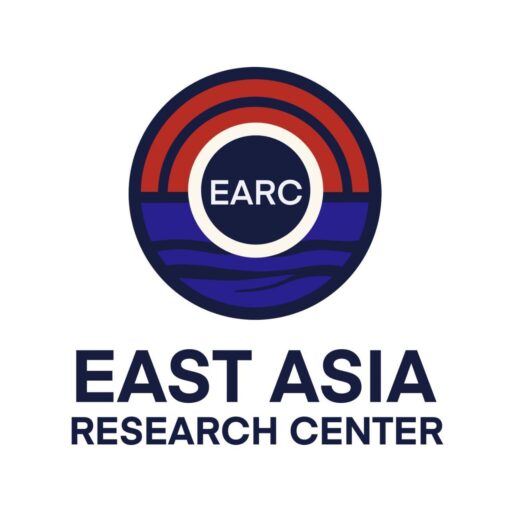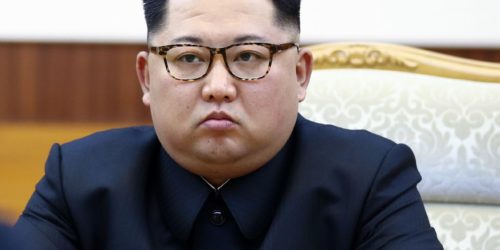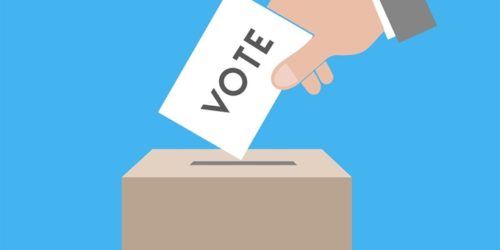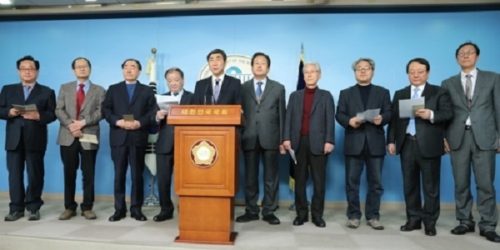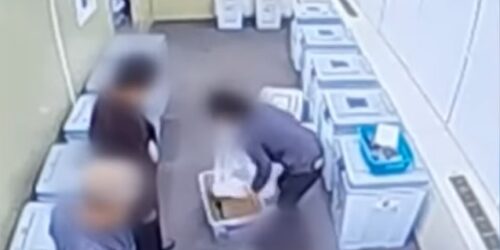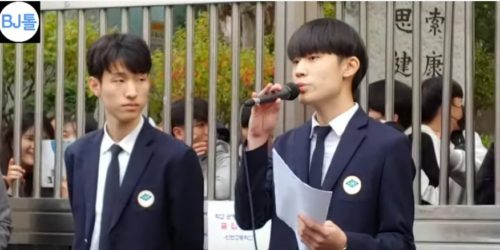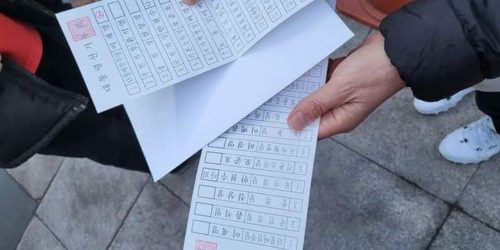South Korean Supreme Court to Finally Decide on the April 2020 Election Fraud in Incheon Case
2022-7-22, Tara O
On July 28, 2022, the Supreme Court will finally make a decision on whether the April 15, 2020 election results of Yeonsu-eul district of Incheon are valid or invalid. The case was filed by former National Assemblyman Min Kyung-wook (민경욱) of the United Future Party (predecessor to the People Power Party, which is a merger of the United Future Party and the Bareun Party). The Supreme Court Justices for this case are Cho Jae-yeon (조재연), Lee Dong-won (이동원), Chun Dae-yup (천대엽), and Min You-sook (민유숙). All of them were appointed by former president Moon Jae-in.
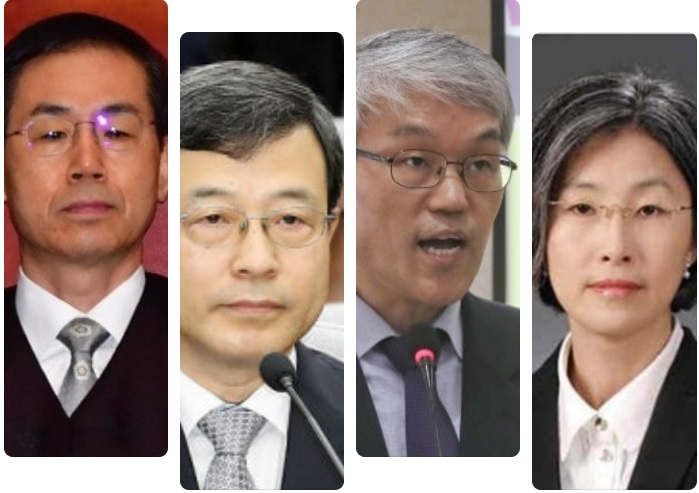
Although this is one case, the decision will be significant, as it will set a precedent for about 130 similar lawsuits regarding the April 2020 elections, and could re-balance the National Assembly, depending on the outcome of the court decisions.
After the April 2020 general election, Moon Jae-in’s Party, the Democratic Party of Korea (DPK, Deobureo Minjoo Party), had a whopping 180-seats (of 300 total seats at the National Assembly), giving it a critical 3/5 majority. It was notable that the DPK members, including its leadership, did not show their elation during the landslide win, but instead all showed somber faces. Yang Jung-cheol (양정철), the chief election strategist for the DPK and Moon Jae-in’s confidant, said he was terrified by the landslide election victory, which was a puzzling comment, then resigned, and hurriedly left the country. Yang said, “I’m terrified and afraid because [they] made such an enormous outcome (landslide victory for his party).” Yang did not specify exactly who “made such an enormous outcome.”
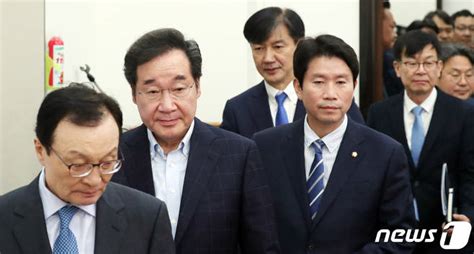
With the 3/5 majority, the DKP can pass or revise any law it wants without the help of other political parties, except for constitution amendments, which require a 2/3 majority or 200 seats. It essentially locked South Korea into a one-party system in matters of lawmaking. With such a majority, the DPK forced through numerous laws that restrict freedom and human rights, while promoting those[a1] that benefit North Korea and China. These freedom-suppressing laws include criminalizing sending leaflets to North Korea as well as making statements about the May 1980 incident in Gwangju that are not part of the narrative, such as saying North Korea was involved in the incident. They also include laws that significantly reduce the national security of South Korea, such as laws to remove counterespionage capabilities against the North Korean threat by deleting relevant portions from the National Security Act and taking away the counterespionage functions of the National Intelligence Service. For details, see here.
Another significance deals with free and fair elections, a pillar of a liberal democracy. The citizens must have confidence that the election process yields results that reflect the citizens’ intent for representation. This means the election process must be transparent and have safeguards to prevent fraud and anomalies, or at least meaningfully address them. When people see election fraud or anomalies, then those anomalies must be addressed and addressed quickly to restore public confidence. In fact, the National Election Law gives the Supreme Court six months to address election fraud cases.
However, the Supreme Court did not consider the above case of election fraud in Yeonsu-eul, Incheon until well over a year, violating the National Election Law, which has been pointed out by the former acting president, prime minister, and United Future Party leader Hwang Kyo-ahn, who specialized in election fraud cases when he was the prosecutor in the National Security section. The date the Supreme Court will make a decision on the Yeonsu-eul (in Incheon) case is more than 2 years since the case was filed. Over 100 other election fraud cases have not even been reviewed. There also is a conflict of interest when a sitting Supreme Court Justice is also the head of the National Election Commission (NEC).
The NEC has steadfastly resisted attempts at recount and punishes anyone who challenges it, which resulted in numerous investigations against those who raised election fraud concerns.
The NEC’s Chairman for its Division 1 Cho Kyu-young (조규영) flatly stated there will not be a recount and promised to take “strong actions” against those who raise election fraud concerns. In fact, the NEC filed charges against the Citizens’ Solidarity for Fair Elections for “distributing false facts” for posting stickers encouraging people to vote on the day of the election (rather than pre-vote).
In March 2022 before the presidential election, the NEC filed charges against Hwang Kyo-ahn, Min Kyung-wook, and Gong Byung-ho (a professor with his own YoutTube channel that deals with election fraud) for encouraging the voters to vote on the day of the election, and pointing out the problems of early voting.
Another example of NEC harassment is its Incheon branch filing a charge against Min Kyung-wook for violating the election law for holding a press conference in front of Lee Jae-myung’s office during the time leading up to the June 1, 2022 local elections. The NEC already filed other charges against him, treating him like an accused, seizing his mobile phone, when he went to answer questions as a witness.
(Note: Lee Jae-myung, mired in various corruption scandals, failed to win the presidential election by .7% in March 2022, but then ran to be a National Assemblyman for the Gyeyang District in Incheon, and won the election, despite low numbers in the polls. Now, Lee is running to be the leader of the Democratic Party of Korea (DPK). For more on Lee Jae-myung, see here, here, here, and here.)
Various citizen groups have raised election fraud concerns, including “Black Protest” youths, students at the Seoul National University, the Professors’ Solidarity of Freedom and Justice (JeongGyoMo), a group of former ambassadors, the 4.15 Election Fraud Truth-Finding Attorneys Alliance, and the Citizens’ Headquarters Against the April 15 Election Fraud.
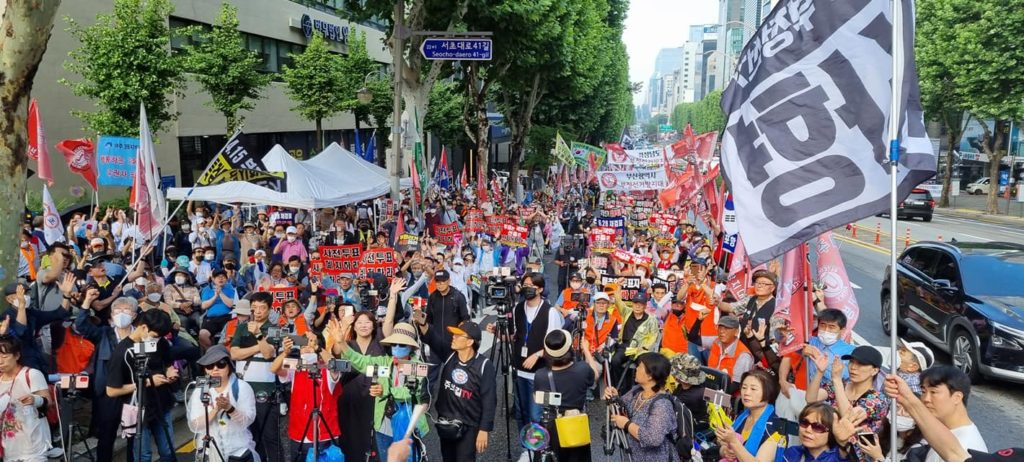
A rally against election fraud was held on July 22, 2022 in front of the Supreme Court at Seocho-dong, Seoul. The Supreme Court’s decision on July 28, 2022 will be closely watched.
